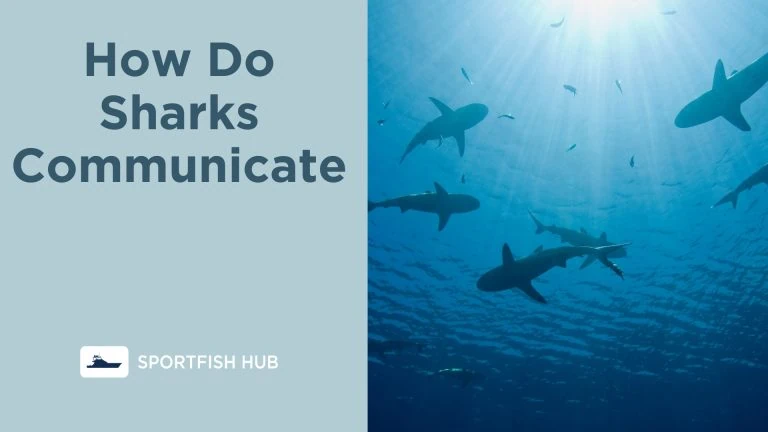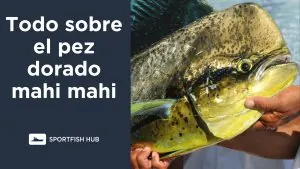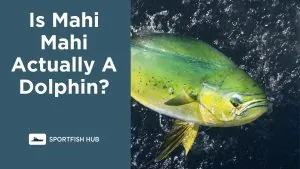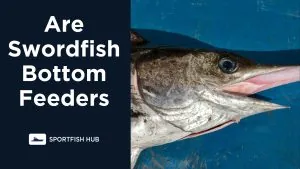Shark communication is a complex process given their lack of vocal cords.
Sharks rely on non-verbal methods like body language, swimming patterns, and highly adapted senses to hunt, interact, mate, and establish social hierarchies.
Understanding how sharks communicate provides insights into their behavior and reduces human-shark conflicts. This article explores the sophisticated techniques sharks use to communicate underwater.
You might also be interested in the following: What sounds do sharks make?
The Social Hierarchy of Sharks
- Sharks establish social dominance and territory through specific body posturing and positioning in the water column. More dominant sharks swim higher while more submissive individuals remain lower.
- Tail slapping, jaw gaping, head shakes, and arching the back are displays used to show dominance. Biting is used to discipline subordinate sharks.
- Hierarchy positions can shift. If a lower shark wants to challenge a higher shark, it may elevate itself in the water column and exhibit dominance postures.
- Understanding the shark hierarchy helps identify territorial behaviors and reduce aggression during human interactions. It also provides insight into mating and reproductive behaviors.
Sensory Organs in Communication
Sharks rely heavily on senses like electroreception, smell, sight, and touch to hunt, navigate, and interact:
- Lorenzini Ampullae – Jelly-filled pores that detect electrical fields from prey muscle movements up to 1/10,000th of a volt.
- Lateral Line – Fluid-filled canals that sense water movements and vibrations. Useful for navigation, prey detection, and interaction.
- Smell – Keen olfactory sense detects blood and pheromones up to 1 mile away. Essential for finding food and mates.
- Sight – Excellent vision adapted for low light. Used for communication through body language and positioning.
- Touch – Skin covered in dermal denticles is highly sensitive to vibration, water motion, temperature, salinity, and pressure changes.
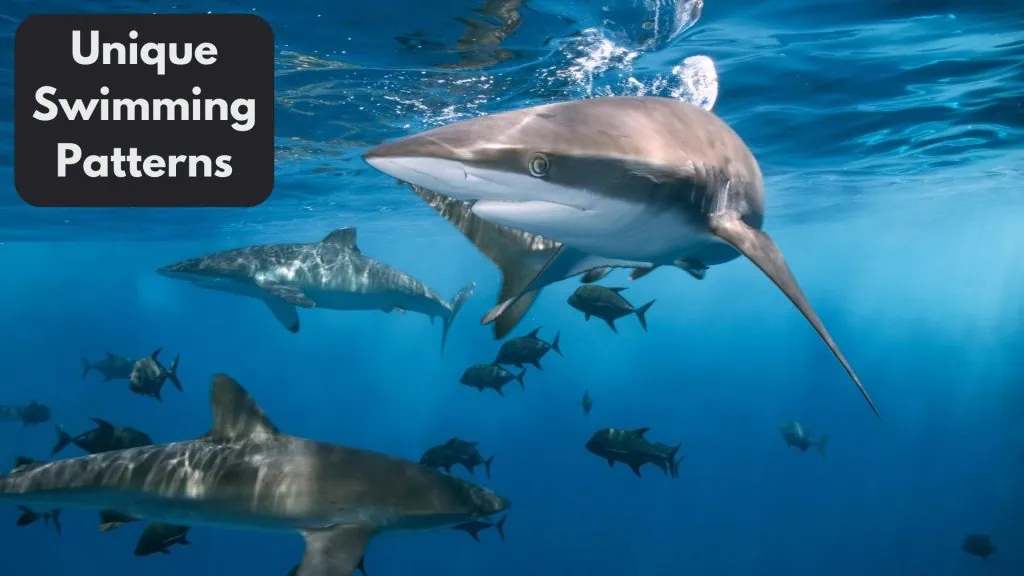
Unique Swimming Patterns
Sharks use specific swimming techniques to interact and communicate:
- Parallel Swimming – Swimming side-by-side to assess size and dominance.
- Following – Dominant shark trailing a more submissive individual to displace it.
- Piggybacking – Dominant shark physically mounting a more submissive shark to push it down in the hierarchy.
These patterns establish rank, discipline subordinates, and send warnings to potential challengers. They are rituals that help avoid dangerous fights and facilitate social cooperation.
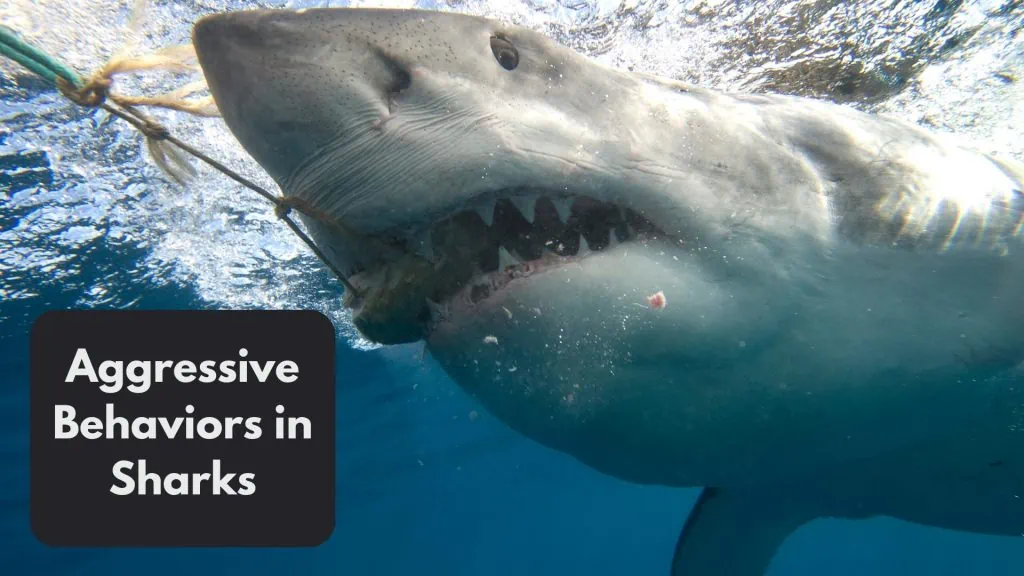
Aggressive Behaviors in Sharks
While sharks are not mindless man-eaters, they do exhibit unique aggressive behaviors:
- Biting – Used to discipline subordinate sharks and establish hierarchy. Bites are rarely intended to inflict mortal injury.
- Gap Rolling – Vertical twisting that positions teeth outward. Seen as a threat display.
- Headshake – Violent lateral head motions that signal irritation or as a dominance display.
- Charge – Burst swim toward opponent. High energy threat display.
- Bite Inhibition – Many exploratory bites on unknown objects.Allows sharks to gather information.
Understanding these behaviors allows humans to dive with sharks safely and avoid triggering aggressive responses.
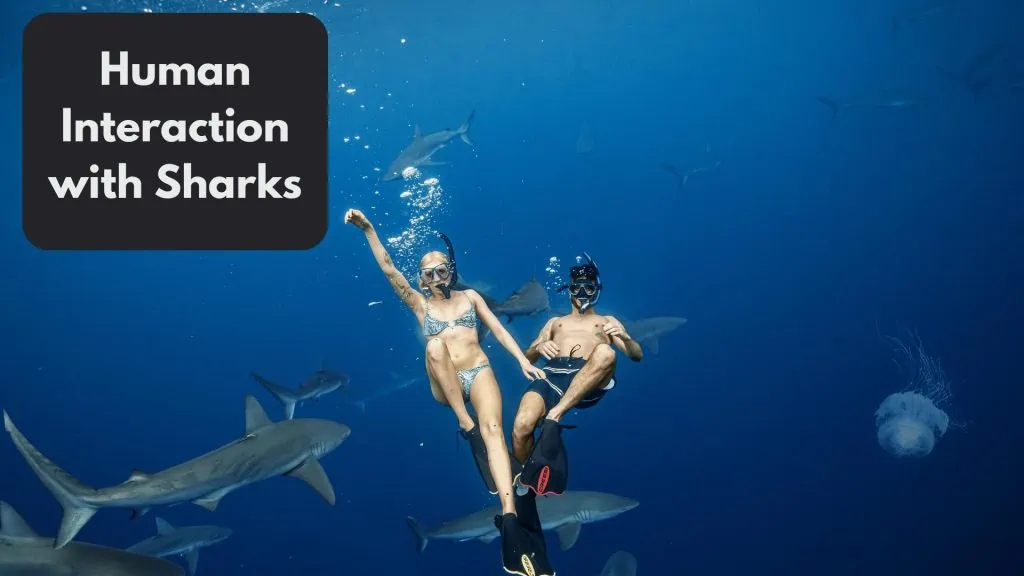
Human Interaction with Sharks
Humans have long feared sharks, but learning to “speak their language” can lead to safe interactions:
- Calm posture and deliberate movements are key. No sudden jerky motions.
- Let sharks approach you. Don’t reach for them. Keep hands low and non-threatening.
- Avoid eye contact initially. Slowly establish contact once shark is relaxed.
- Understanding shark body language and hierarchy prevents perceived challenges.
- Stay grouped together. Solo individuals invoke curiosity and get investigated.
With proper precautions, diving with sharks can alter perceptions and promote conservation.
Conclusion
Despite their primal nature, sharks display sophisticated non-verbal communication techniques crucial to their survival. While human-shark interactions can be dangerous, learning to “speak shark” promotes safer diving. Furthermore, understanding their behaviors encourages appreciation, dispels irrational fears, and provides insights to better protect these vital marine predators. Supporting shark conservation ensures our ocean remains in balance.
References
- Myrberg, A. A., Jr. (2001). The Acoustical Biology of Elasmobranchs. Environmental Biology of Fishes, 60, 31–45. DOI
- Kalmijn, A. J. (1971). The Electric Sense of Sharks and Rays. Journal of Experimental Biology, 55(2), 371–383. Link
- Maruska, K. P., & Tricas, T. C. (2004). Test of the mechanotactile hypothesis: neuromast morphology and response dynamics of mechanosensory lateral line primary afferents in the stingray. Journal of Experimental Biology, 207(22), 3463–3476. DOI
- Gardiner, J. M., Atema, J., Hueter, R. E., & Motta, P. J. (2014). Multisensory Integration and Behavioral Plasticity in Sharks from Different Ecological Niches. PLOS ONE, 9(4), e93036. DOI

